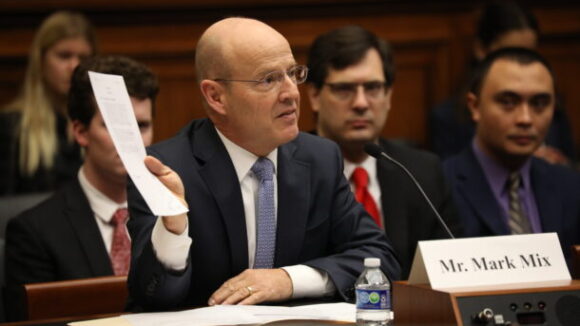Committee President's Statement on Senate 'Labor Law Reform' Hearing
On Wednesday, October 8th at 10:00 AM ET, the Senate Health, Education, Labor, and Pensions (HELP) Committee will hold a…
A Right to Work measure now scheduled to come up in the Wisconsin Senate this week is widely expected to clear both chambers of the Badger State Legislature and be signed by GOP Gov. Scott Walker by early next month. Majorities in both chambers of the state capitol in Madison have told Senate and Assembly leaders that they plan to vote for the Right to Work Bill.
Why is legislation that would bar union officials from getting employees fired for refusal to pay dues or fees to an unwanted union now poised to become law in Wisconsin? One key reason is that the vast majority of Wisconsinites who regularly vote agree that no one should be forced to affiliate with a union as a job condition, as a recent scientific statewide poll conducted by the Tarrance Group demonstrated.
A second reason is that more and more people in Wisconsin are becoming aware of the ample evidence that Right to Work laws facilitate job and employee compensation growth. For example, inflation-adjusted U.S. Commerce Department data show that, from 2003-2013, private-sector employee compensation (including wages, salaries, bonuses, and the dollar value of benefits like health insurance) in the five Midwestern states that protected the Right to Work for the whole decade increased by more than four times as much as in Wisconsin and by nearly seven times as much as in Midwestern forced-unionism states as a group. (Indiana and Michigan, which passed Right to Work laws in 2012, are excluded from this analysis.)
Demographics are arguably an even more compelling indicator of Right to Work laws’ beneficial impact. In the five Midwestern states with longstanding Right to Work laws, the aggregate K-12 school-aged population (age 5-17) grew by nearly 33,000 from 2003 to 2013., according to the U.S. Census Bureau. Meanwhile, Wisconsin’s school-aged population fell by 36,000, and Midwestern forced-unionism states’ total population in that age bracket fell by 323,000.
In the nation as a whole as well as in the Midwest alone, Census Bureau data bear stark witness to breadwinners’ understanding that, when regional differences in living costs are taken into account, they are typically better able to provide for their families in Right to Work states. That is undoubtedly a key reason why they, their spouses, and their children are flocking to such states.
Yet Big Labor apologists who are now mounting a last-minute effort to derail the Right to Work in Wisconsin such as Lisa Graves, editor of the Madison-based Center for Media and Democracy’s PR Watch, regularly pretend that in battling to protect compulsory unionism they are acting in the interest of “working families” and trying to preserve “family supporting jobs.” (See the link below for more information.) The reality is, if the real aim of Ms. Graves and her cohorts were to foster the creation of more family-supporting jobs in Wisconsin, they would be backing efforts to enact a state Right to Work law.


On Wednesday, October 8th at 10:00 AM ET, the Senate Health, Education, Labor, and Pensions (HELP) Committee will hold a…

Committee President: Union Violence is an Ongoing Problem Washington, D.C. (September 8, 2025) – The National Right to Work Committee commended Pennsylvania Congressman…

Employment in Right to Work States up by 10.1 Million Since 2014